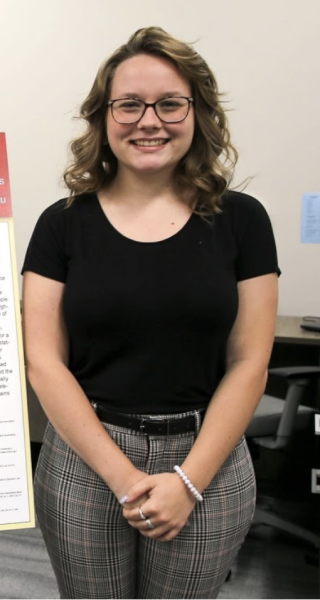Ungrading; a movement for student-based learning.
February 17, 2023
Erie, Pa, February 14, 2023—Professors across CHESS at Gannon are joining the ungrading movement to assess their students in diverse ways.
The ungrading movement has several different goals, as do the professors who participate. Valuable learning and making mistakes are concerns which professors who use ungrading have addressed.
Mr. Nicholas Emmanuele, an adjunct lecturer in the education department, uses ungrading methods as a means for his students to focus on learning rather than a percentage or letter grade. He also concluded that students are less likely to take risks.
Mr. Emmanuele said, “We ask students to take risks, but when all assignments are averaged together, our practices of grading show that some risks are too dangerous when we consider points.”
Dr. Douglas King, a professor of English and the fine arts, has joined the ungrading movement to embolden his fight against plagiarism and cheating.
“…When grades are king (as they are for virtually every student from the beginning and throughout their school experience), then students can justify whatever is necessary to attain that all important pearl,” said Dr. King. “That paramount value (getting an A) trumps lesser values such as honesty and integrity.”
Dr. King in his paper on the subject of ungrading, mentions that students are more likely to simply discover what it takes to complete an assignment based on the professor’s scale rather than truly putting effort into learning from their assignment.
In agreement with Dr. King and Mr. Emmanuele is Dr. Jennifer Popa, a professor from the English Department. She mentioned that as a creative writing professor her students are taking part in the process of writing, where first drafts aren’t always perfect. Her search for ungrading was for a system that would allow mistakes and changes to happen.
Dr. Popa said, “Anyone who writes knows that writing is a process, and you find yourself in dead end after dead end… but I’d like to have a grading system that is conducive to getting it wrong and trying again.”
Dr. Janna Gonwa, Professor of Theology and Dr. Lauren Garskie, Professor of English have also employed the use of ungrading in their classes.
Professors use ungrading methods for different reasons, many of which are to help students to have a say in what their accomplishments represent, as well as what they hope to get out of their classes.
A student from the biology department who has had ungraded courses mentioned in an interview that when considering their grasp of the material ungraded classes provide the opportunity for a better understanding, while a percentage grade is better for understanding the student’s mastery of the topic.
Annah Maphis, a secondary-education English major, discussed her approval for the system when it comes to writing papers. “It [ungrading] focuses more on the quality of work and allows students to have more control with their grades,” said Annah. “It often also makes students feel overall more confident with their writing, and I believe that should be a goal at the end of the day!”
As it stands, there is much to consider when thinking about ungrading classrooms. The classes and how classes are set up (online, in person etc.) are factors which need to be considered when determining whether a course could be successful with a system such as labor-based.
Trying new things and adapting into new ways of thinking is essential for growth, and the grading of students is no different.




